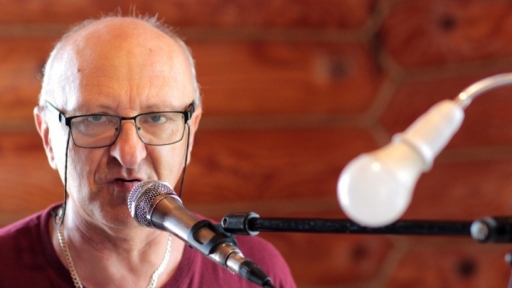Russia’s coronavirus cases rising, but the Orthodox church holds to traditions such as kissing icons

One by one, they pressed their forehead to the shrine and kissed it. A volunteer then wiped it with a cloth.
Even as places of worship across the globe have closed or switched to online services amid the coronavirus pandemic, some in the Russian Orthodox Church have insisted it will not stop in-person services or try to block traditions such as kissing icons - PHOTO GALLERY.
The stance in Russia has been followed by some other Orthodox priests in Greece, Bulgaria and across other Orthodox churches. But Russia, the largest among the various Orthodox churches, has added influence, especially in Orthodox churches in Eastern Europe and the former Soviet republics.
Russia’s government, while starting to impose closures in other sectors, has so far largely left the church alone, even as the number of cases in Russia rises. The country’s rates are still lower than parts of Europe or the United States. Russia reported 840 confirmed cases Thursday, with 546 of those in Moscow, but the past two days have seen the largest spike.
St. Petersburg is the only city that has banned visits to churches next week, a nationwide paid holiday that officials hope will lead to citizens staying home.
The Moscow Patriarchate adopted preventive guidelines last week, including serving the traditional Communion drink with individual disposable spoons and asking church personnel to wear disposable gloves when giving pieces of bread to worshipers. Priests have been told to avoid physical contact with parishioners.
The practice of kissing the cross at the end of a liturgy is now prohibited, but kissing icons is still allowed — though they’re to be disinfected after each person.
“There is no scientific data that congregations could become points of dissemination of infection,” Russian Orthodox Church spokesman Vakhtang Kipshidze said. “That is why at this stage we consider that the measures that have been undertaken by our church [are] sufficient to provide security for our believers.”
Religious congregations have played a central role in some coronavirus clusters.
A now-shut messianic church in South Korea helped spark that country’s epidemic last month. A synagogue in New Rochelle, N.Y., became the epicenter of an outbreak earlier this month after the congregation’s rabbi tested positive for the coronavirus.
In Louisiana, a Baton Rouge pastor has defied the governor’s order not to hold gatherings larger than 50 people, with Sunday services drawing about 1,000 people.
But others have made concessions. Catholic churches in Rome have been closed for the past two weeks. Iran canceled Friday prayers this month. Saudi Arabia banned citizens and other residents from performing the pilgrimage in Mecca. All synagogues in Israel were ordered closed Wednesday.
Moscow Mayor Sergei Sobyanin announced the closure of all restaurants, nonessential stores, parks and bathhouses in the city starting Saturday. He did not order churches closed, but wrote on his website: “Being aware of the feelings of Moscow believers, I still recommend and ask them to abstain from visiting religious sites on these days.”
Russia’s official coronavirus numbers are relatively low. Even Moscow’s mayor is questioning the count.
But talk of the government ordering churches to close in Russia, even temporarily, can be a touchy subject, stemming from the Orthodox Church’s history in the officially atheist Soviet Union and even before that.
“Under the Bolsheviks, when the conditions were completely different and the authorities were up against the church and they decided to eradicate Christianity from the streets of Russia, still the sacraments were held whenever they could,” said Hieromonk Macarios of the Ivanovo-Voznesensk diocese, about 200 miles northeast of Moscow.
Patriarch Kirill, who has led the Russian Orthodox Church since 2009, approved a special prayer about the coronavirus this week, referring to it as a “pestilence.” A convent in Yekaterinburg has said it was producing incense with “antiviral effect,” noting that parishioners are less likely to get sick with it burning during worship.
Metropolitan Hilarion, of the Moscow Patriarchate, told the state-run Rossiya-24 channel that “no virus or disease can be transmitted through Communion.”
But other members of the church have acknowledged the potential hazards.
“People stand closer to each other in temples, so there are certain risks, of course,” said Archpriest Alexander Sorokin, adding that “it is probably true that such public meetings should be banned for the time being.”
Macarios said he’s discouraged worshipers from kissing icons but added that the church “can’t put a police officer next to every parishioner.” He hasn’t noticed any effort to socially distance in services.
“Our Russian people are less cautious than they should be,” he said.
Article first published washingtonpost.com.

Masāžas paraugdemonstrējumi! Konkursi skropstu un uzacu meistariem, frizieriem, stilistiem, vizāžistiem, bārddziņiem - Baltic Beauty 2025 (4)

RIGA COMM Ķīpsalā! 3000 dažādu nozaru profesionāļi. Digitālie risinājumi, lai izglītotos, tīklotos un izveidotu jaunus, noderīgus kontaktus (4)

200 dalībnieku no dažādām valstīm! TOP 7 iedvesmai – kas noteikti jāredz interjera, dizaina izstādē Riga Furniture Interior 2025 (2)

Īpaši mīļi un sirsnīgi! Mūziķis Ainārs Ašaks pēc māmiņas došanās mūžībā izsaka emocionālu pateicību NMPD Valmieras brigādei (24)

Negaidīti mūžībā devies Latvijas TV skatītāju iemīļotais eksperts Aigars Freimanis (2)

 lmss.lv
lmss.lv





